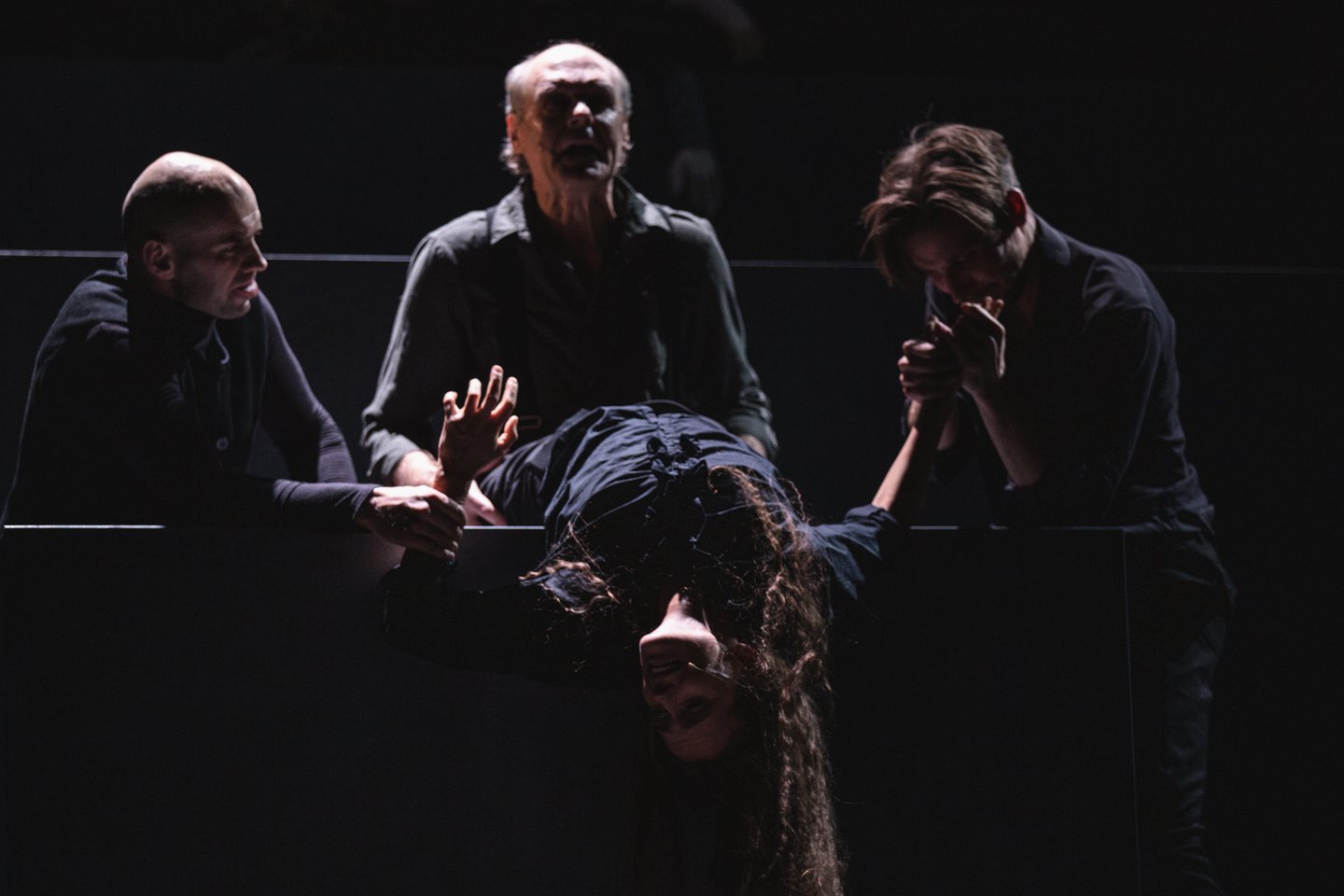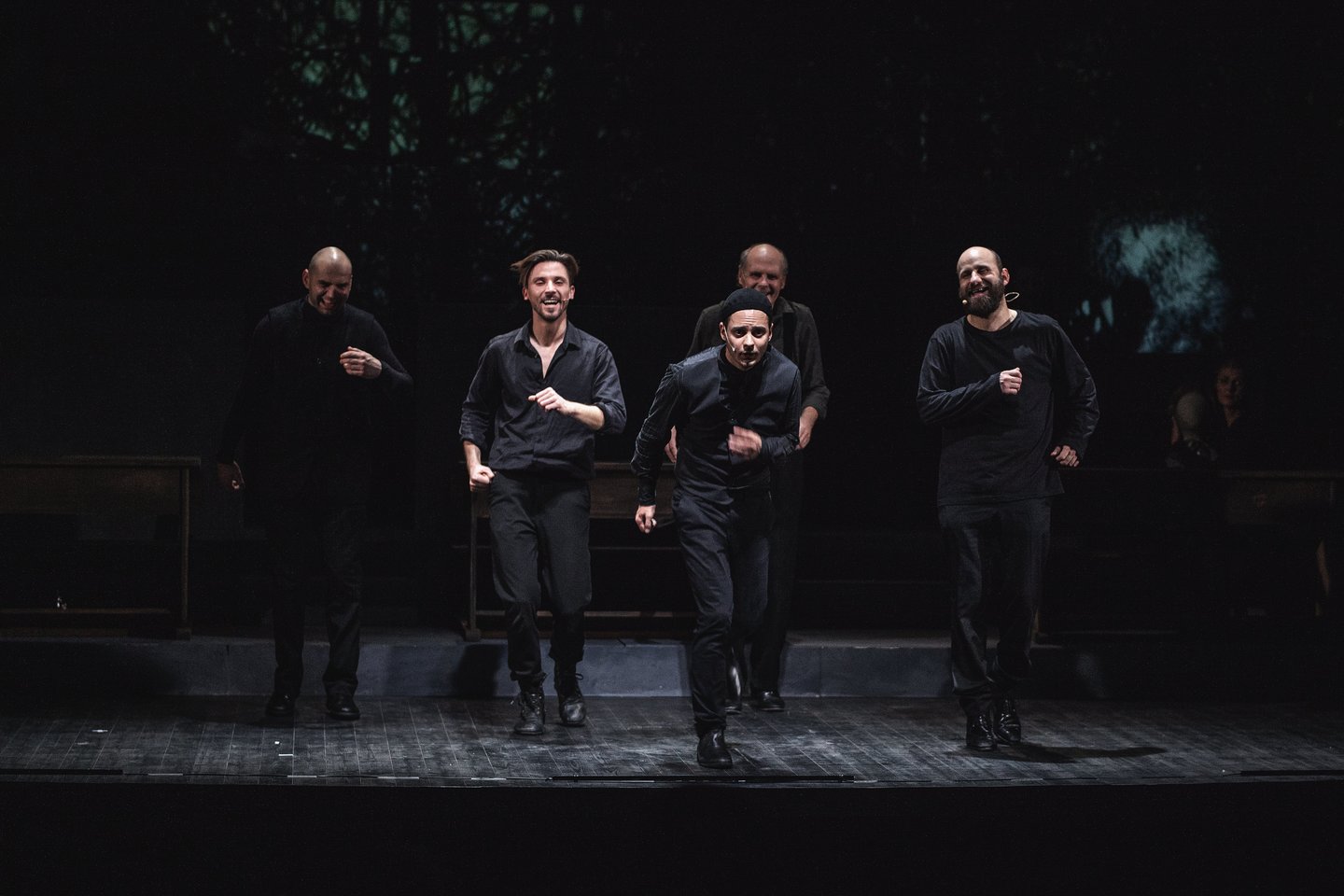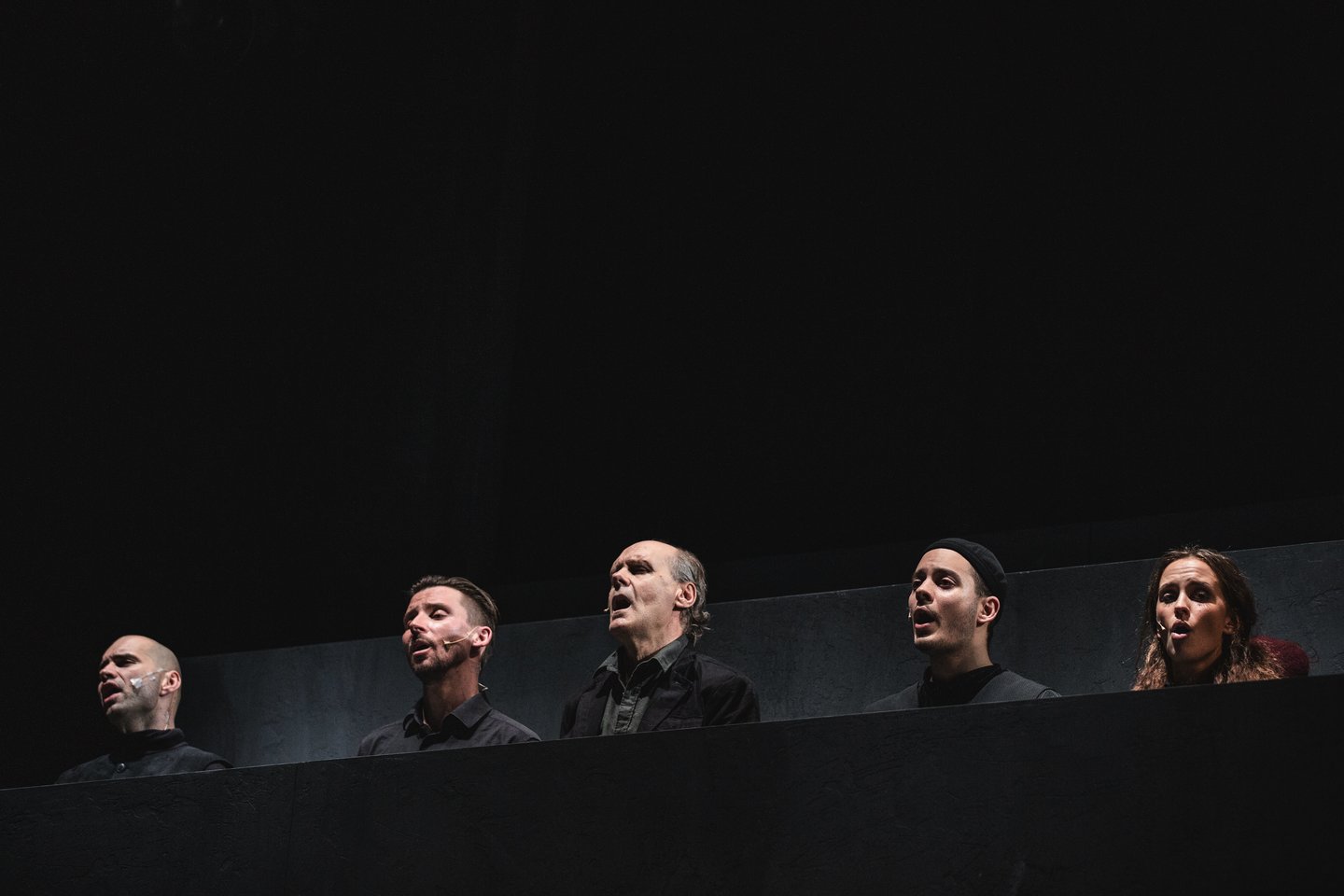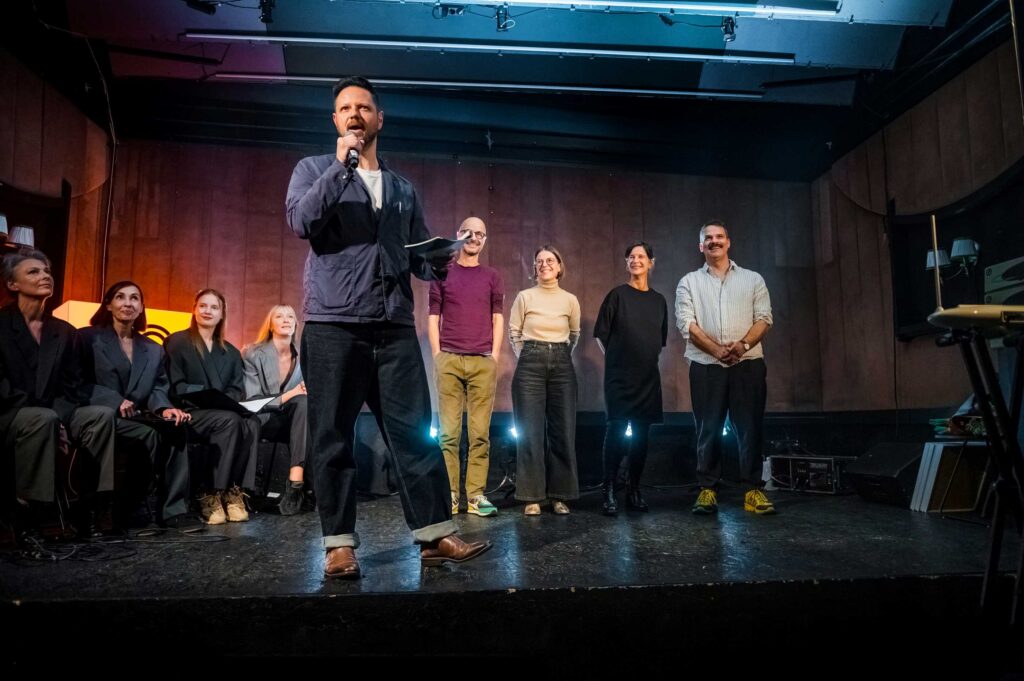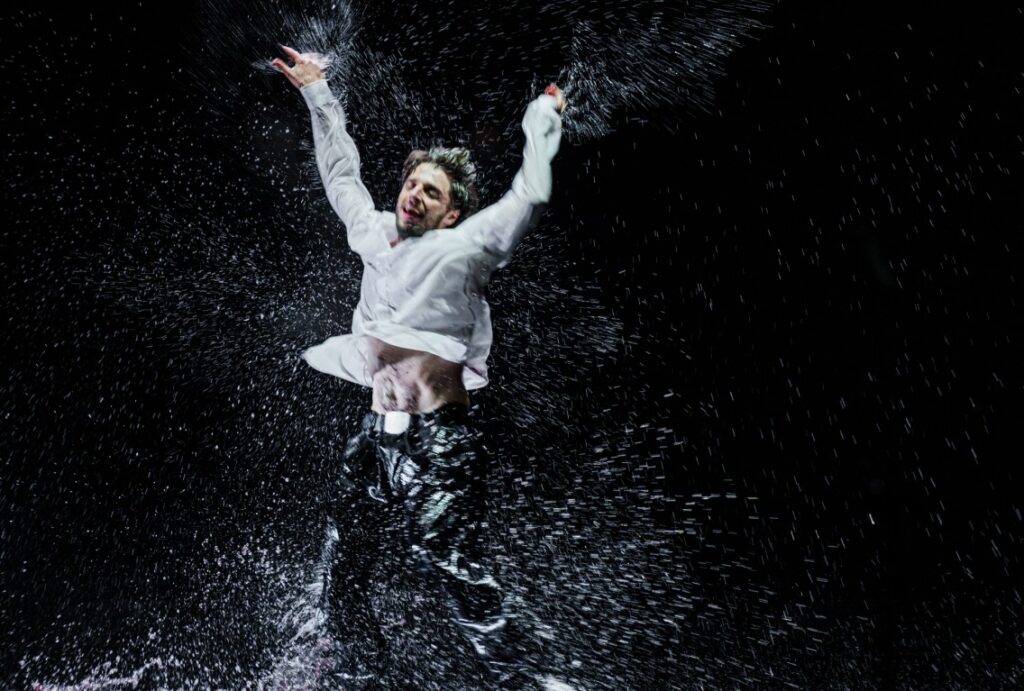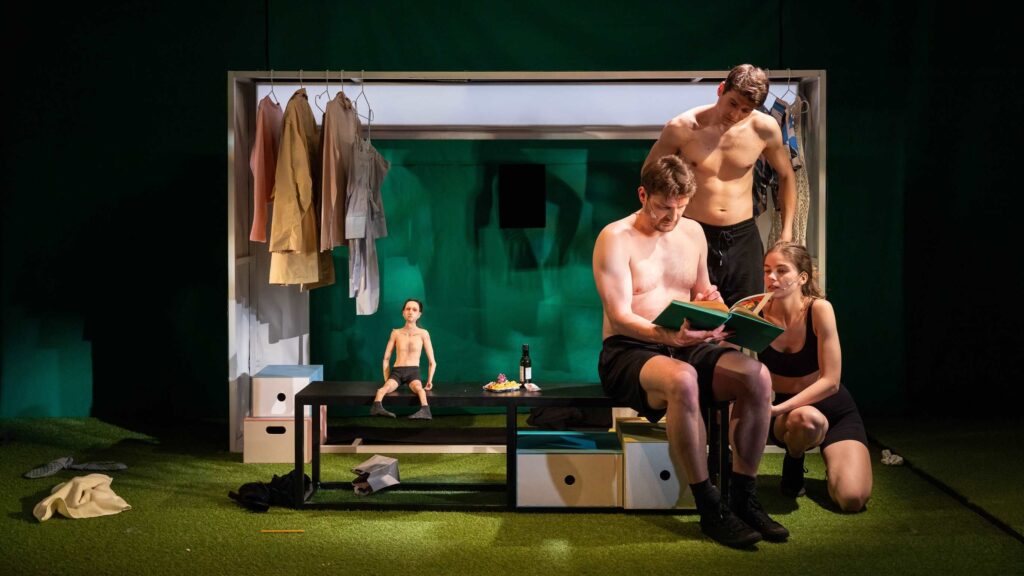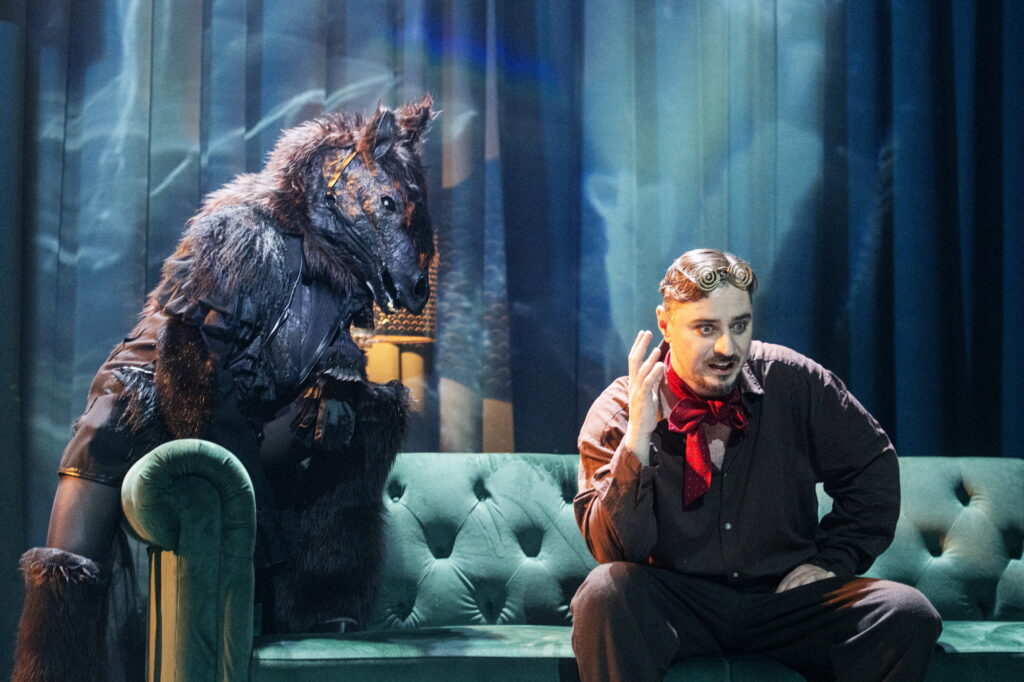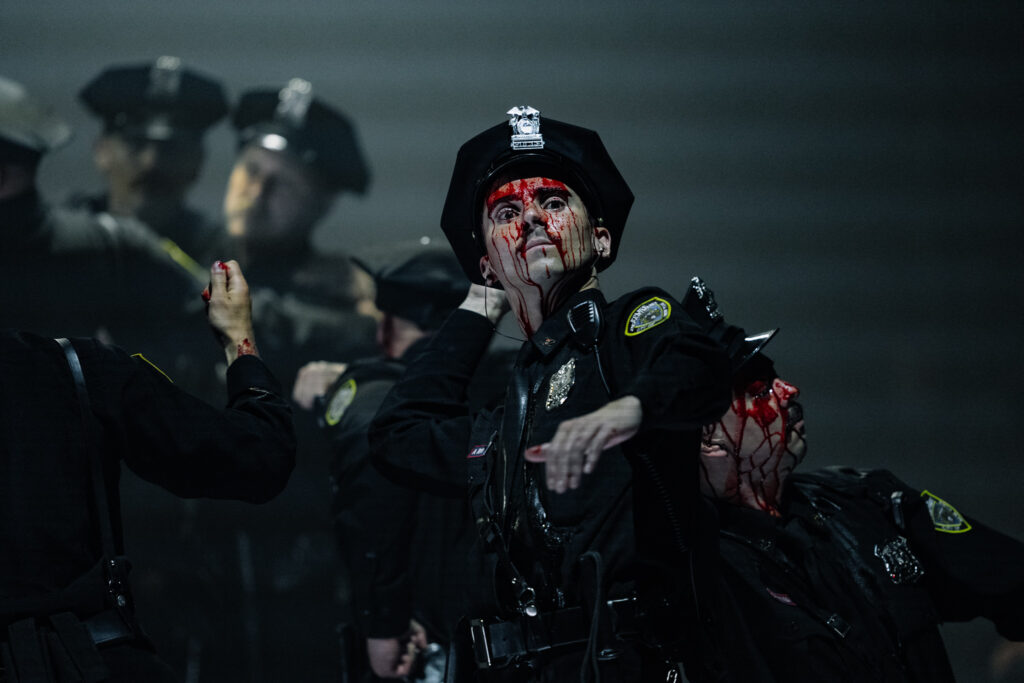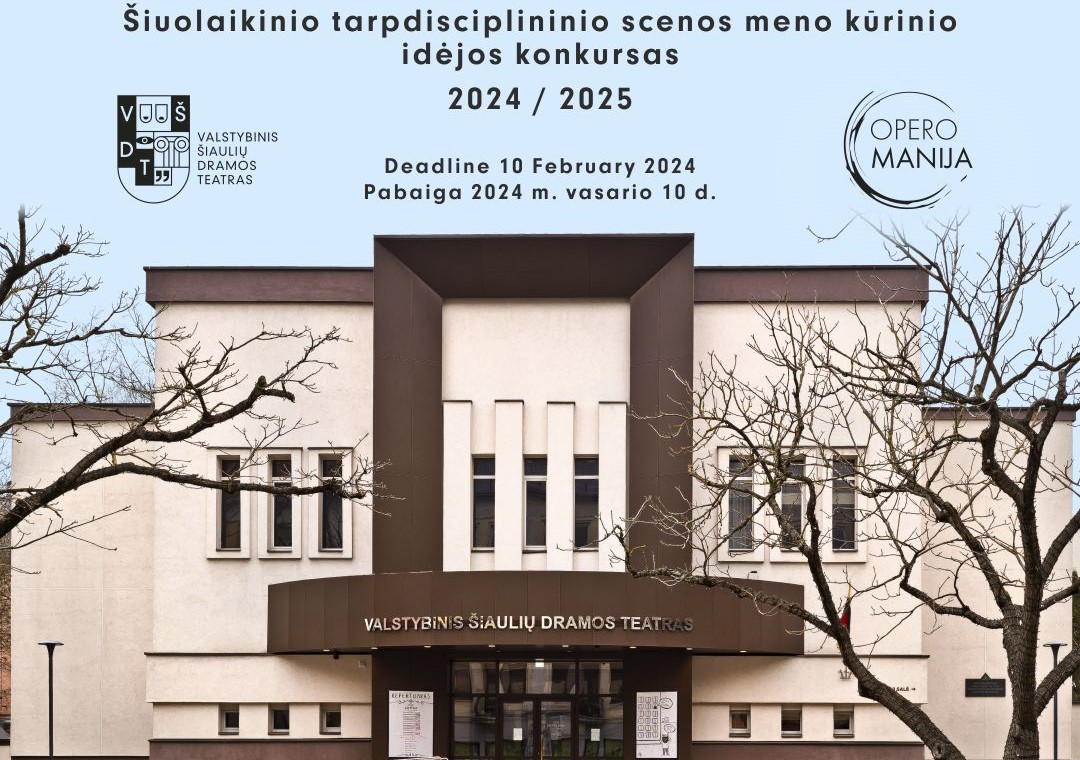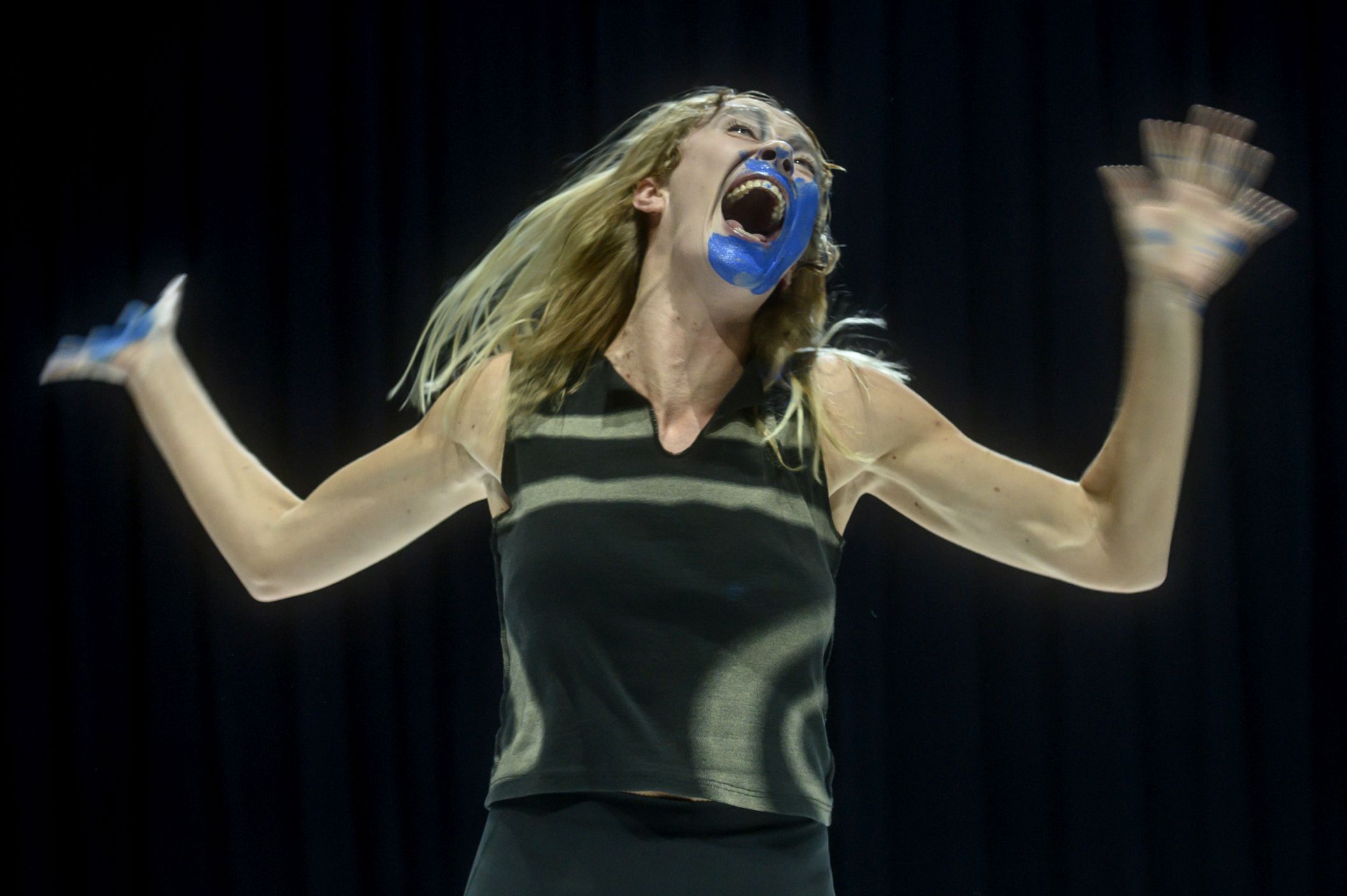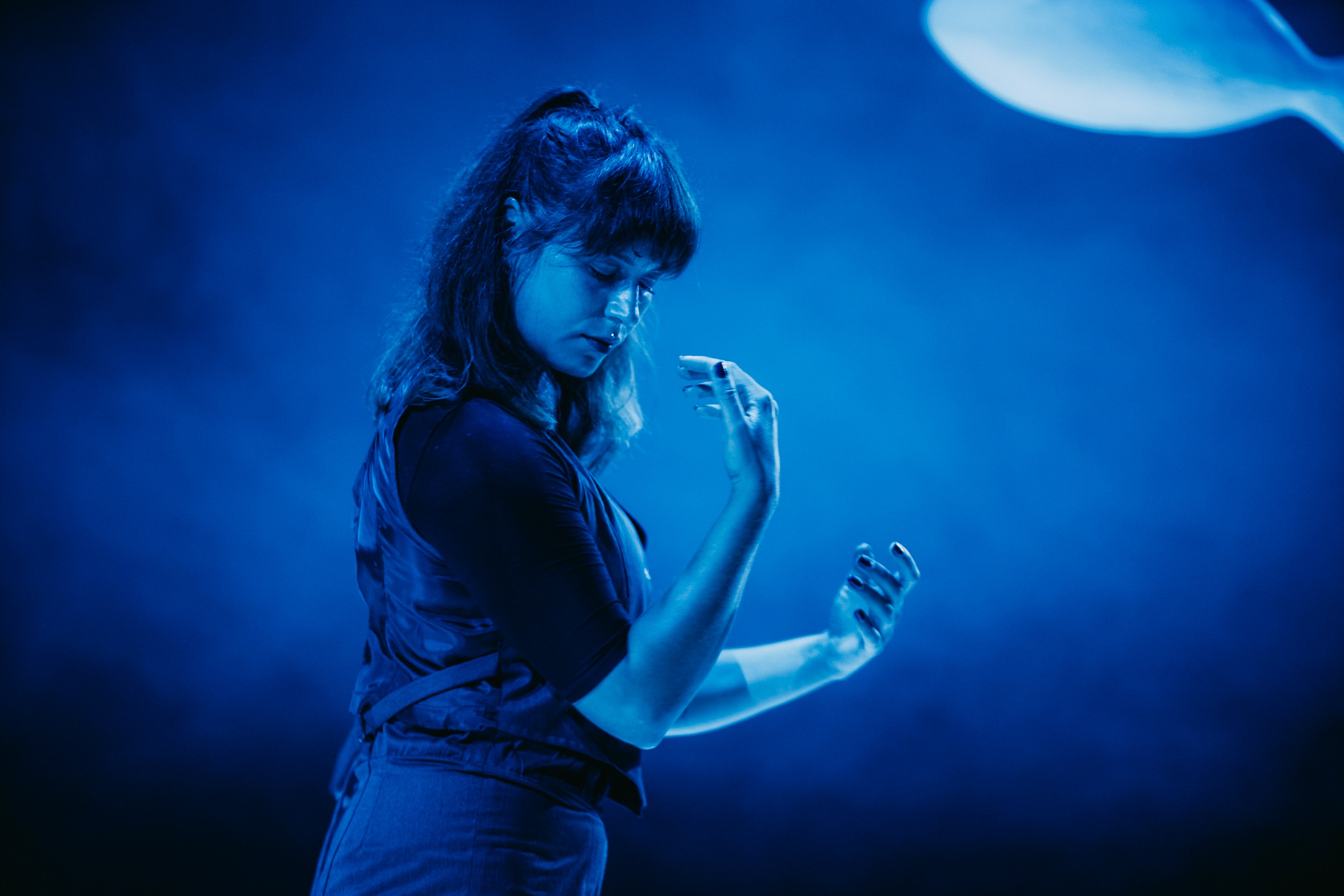Our Class is the most frequently staged contemporary Polish play. The story depicts lives of ten classmates, intervened by the Holocaust. Oskaras Koršunovas, one of the most prominent Lithuanian theatre directors staged the piece by Tadeusz Słobodzianek in Klaipėda, the Lithuanian port city.
The play is based on actual event: in the summer of 1941, the Jews of Polish town Jedwabne were locked in a barn and burned alive. The murderers were ordinary people - neighbours and classmates of those Jews, perhaps some even sat together at the same desk during a school class. The playwright narrates the tragedy in a form of 14 scenes / lessons that form the structure of the play. Our Class features ten characters - five Jews and five Poles and the timeline of the piece extends over eight decades revealing stories of classmates before and after the event, to the very end of each character's life. It is not a story about victims and executioners; in the play every character deserves compassion and understanding, each and every one experiences blows of fate and has to pay for one's mistakes.
Oskaras Koršunovas directed Our Class at the Norwegian National Theatre in Oslo in 2015, garnering tremendous critical acclaim. In Klaipėda he worked together with his permanent stage partners - set designer Gintaras Makarevičius and composer Gintaras Sodeika. While staging the piece in Lithuanian port city, the entire team had an opportunity to return to familiar material.
Gintaras Makarevičius created a massive grey set, which, just like the set design in Oslo, reminds both of the court tribunal (the Nuremberg trials!) and the Holocaust memorial in Berlin. Upstage, a screen opens from time to time - this platform portrays scenes from a “different life”: here Abram is reading letters to his classmates after fleeing to the United States, or the classmates remember a movie they saw before the war. The same space also turns into a screen reminding of the ever changing political leaders, regimes and events. Thus, the scenes of the performance render additional context for the fates of the characters. According to performing arts critic Aušra Kaminskaitė: “one of the most prominent manifestations of director's hand lies in the attention to political systems and other ideologies, serving to explain stages of society development and hinting the reasons behind actions of individual people”.
The performance of Our Class directed by Oskaras Koršunovas begins as the audience is gathering. Quiet sound and video projection: tiny figures of children are descending from top of the stage, as if it were raining children. As if those children were the tears of the universe. Old school benches and overall set design by Gintaras Makarevičius serve as a screen for this scenery. An image of children descending into nothingness is pleading the audience to concentrate. To become quiet not for one minute, but for several hours of the performance, which encompasses a condensed history of the twentieth century.
The first scene, featuring the characters as first grade pupils is played by the actors manipulating large child-sized puppets, created for the performance by famous puppeteer Julija Skuratova. The puppets in this performance are faceless and yet, each and every one is individualised, bearing numerous meanings. They represent both the pupils and their school backpacks, when they are carried on actors' backs. At first the actors hide behind them, acting through puppets and speaking in childlike voices. Those puppets might be perceived as an inner child, present alongside throughout one's entire life, a kind of eternal hump on a back. “As the action progresses, puppets and people separate and puppets have to “survive” the human cruelty - beating, mauling, killing; eventually the puppets are seen lying as a pile of corpses. However, their key function is to personify the demonic nature of humans, their spirit of death and infernal alter ego. In the course of action the puppets are replaced by characters played by actors who seem to have turned into puppets themselves, unable to escape the closed infernal world of a puppet theatre; they are continually present on stage, the living together with the dead”, writes theatre critic Julijus Lozoraitis.
Theatre reviewer Rūta Oginskaitė had an opportunity to see and compare both Oslo and Klaipėda productions of Our Class by Oskaras Koršunovas. She recalls that the Oslo production had a breath of solemnity, its violence was stylised, while the climax of the play - the burning of Jews in a barn - was accompanied with traditional mourning song commemorating victims of the Holocaust. “Composer Gintaras Sodeika adapted the song S'brent (It is Burning) by Jewish songwriter Mordechai Gebirtig for the Norwegian performance; it was strikingly lamented by an elderly actor Erikas Hivju, who also played Abram, a classmate, sent by his parents to America in his teen years, where he became a rabbi. The performance in Norway itself looked as reserved theatrical mass. At that time, this performance directed by Koršunovas unexpectedly rhymed with stories of the 21st century refugees - these people invade Europe trying to escape their own jedwabnes”, says Oginskaitė, stressing that “all characters depicted in Słobodzianek's play are already dead.” Their recollections are short-spoken, precise and cruel. Actors of the Klaipėda theatre make them bleed again, tearing from the inside: it is not past, all tragedies are happening all over again, right now. Sometimes the actors' fiery expression seems to be over the top, as if creators of the piece had decided not to trust the audience's perception and imagination, hence: everyone tells a story, demonstrating and acting the story told”.
Speaking about actors, Oginskaitė writes: “Rather than stating his truths, Rysek (played by Jonas Baranauskas) howls them out, a fierce defender of Poland from Jews and Soviets. It is one of the more vivid roles in Our Class, a kind of pitchfork of the whole performance. To bellow out one's experience! So that no one has any doubts that it was horrible and should never happen again. However, it is somewhat more intriguing to follow the fate of Zygmunt - a sneaky changer of viewpoints, a quiet traitor who sells everyone. Played by Igoris Reklaitis, this character first of all presents a highly nuanced human being, even though a slug at all times. The role of Abram, the Jew who fled to America to become a rabbi and who supported the erection of a Holocaust memorial, is entrusted to a young and interesting actor Mikalojus Urbonas. He was the one to carry the burden of performance's symbolic mourning song that was significantly reduced and quieted, nonetheless, Urbonas' singing was expressively lurid”.
Summarising her assessments, Aušra Kaminskaitė considers: “Perhaps the director employs shrieks and illustrative scenes of cruelty in order to make the audience physically experience the violence that was in the air throughout World War II. This leads to an assumption, that perception of something that one has not and would rather not have experienced today becomes possible solely with the help of art, and, especially - performing arts, where the audience is exposed to a corporeal spectacle. Bodies or brains of others simply cannot withhold a reaction to such performance“.
Historian Donatas Puslys comments that it was “vital to accept the performance as a question addressed to every one of us, namely - why one classmate raises a hand against another and can it happen again, today?” According to Rūta Oginskaitė, “Our Class by Koršunovas spreads a stern message full of creators' pain and their desire to penetrate the conscience of the audience, in the event the latter is still inclined to doze and doubt. Initially encouraging silence in the audience, the performance itself eventually begins to evoke, scream and pound around instead of merely knocking. Maybe, maybe, maybe it will succeed”.
APAC info


